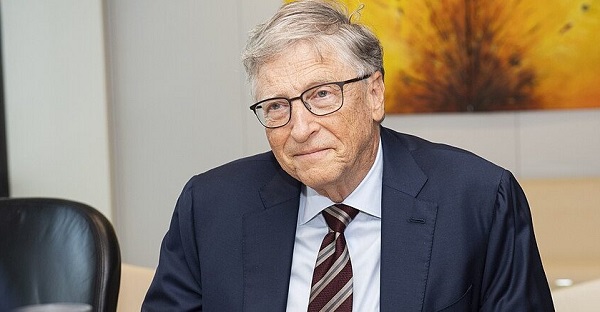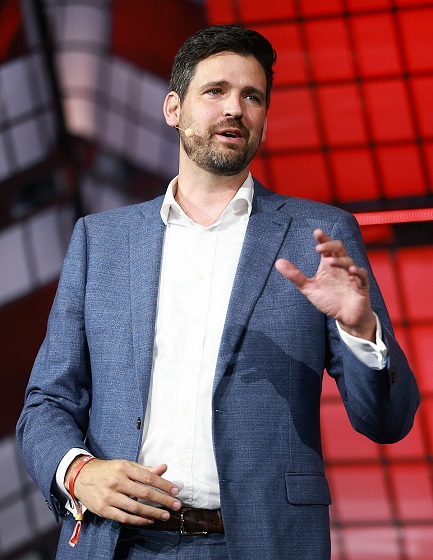International
Ghislaine Maxwell to be sentenced in Epstein sex abuse case

NEW YORK (AP) — Ghislaine Maxwell, the jet-setting socialite who once consorted with royals, presidents and billionaires, is set to be sentenced Tuesday for helping the wealthy financier Jeffrey Epstein sexually abuse underage girls.
The 11 a.m. sentencing in New York is the culmination of a prosecution that detailed how the power couple flaunted their riches and prominent connections to lure vulnerable girls as young as 14, and then exploit them.
Prosecutors said Epstein, who killed himself in 2019 while awaiting trial, sexually abused children hundreds of times over more than a decade, and couldn’t have done so without the help of Maxwell, his longtime companion and onetime girlfriend.
“Maxwell’s conduct was shockingly predatory. She was a calculating, sophisticated, and dangerous criminal who preyed on vulnerable young girls and groomed them for sexual abuse,” prosecutors wrote in a court filing.
In December, a jury convicted Maxwell of sex trafficking, transporting a minor to participate in illegal sex acts and two conspiracy charges. Prosecutors say she deserves 30 to 55 years in prison.
Maxwell, 60, has denied abusing anyone. Her lawyers have asked U.S. District Judge Alison J. Nathan to impose a sentence of no more than five years.
“The witnesses at trial testified about Ms. Maxwell’s facilitation of Epstein’s abuse, but Epstein was always the central figure: Epstein was the mastermind, Epstein was the principal abuser, and Epstein orchestrated the crimes for his personal gratification,” they wrote in a court filing.
Epstein and Maxwell’s associations with some of the world’s most famous people were not a prominent part of the trial, but mentions of friends like Bill Clinton, Donald Trump and Britain’s Prince Andrew showed how the pair exploited their connections to impress their prey.
Over the past 17 years, scores of women have accused Epstein of abusing them. Many described Maxwell as acting as a madam who recruited them to give massages to Epstein.
The trial, though, revolved around allegations from only a handful of those women.
Four testified that they were abused as teens in the 1990s and early 2000s at Epstein’s mansions in Florida, New York, New Mexico and the Virgin Islands.
Three were identified in court only by their first names or pseudonyms to protect their privacy: Jane, a television actress; Kate, an ex-model from the U.K.; and Carolyn, now a mom recovering from drug addiction. The fourth was Annie Farmer, who identified herself in court by her real name after speaking out publicly.
They described how Maxwell charmed them with conversation and gifts and promises that Epstein could use his wealth and connections to help fulfill their dreams.
Then, they testified, she led them to give massages to Epstein that turned sexual and played it off as normal.
Carolyn testified that she was one of several underprivileged teens who lived near Epstein’s Florida home in the early 2000s and took up an offer to massage him in exchange for $100 bills in what prosecutors described as “a pyramid of abuse.”
Maxwell made all the arrangements, Carolyn told the jury, even though she knew the girl was only 14 at the time.
The allegations against Epstein first surfaced publicly in 2005. He pleaded guilty to sex charges in Florida and served 13 months in jail, much of it in a work-release program as part of a deal criticized as lenient. Afterward, he was required to register as a sex offender.
In the years that followed, many women sued Epstein over alleged abuse. One, Virginia Giuffre, claimed that Epstein and Maxwell had also pressured her into sexual trysts with other powerful men, including Prince Andrew. All of those men denied the allegations and Giuffre ultimately settled a lawsuit against Andrew out of court.
Federal prosecutors in New York revived the case against Epstein after stories by the Miami Herald in 2018 brought new attention to his crimes. He was arrested in 2019, but killed himself a month later.
Eleven months later after his death, Maxwell was arrested at a New Hampshire estate. A U.S., British and French citizen, she has remained in a federal jail in New York City since then as her lawyers repeatedly criticize her treatment, saying she was even unjustly placed under suicide watch days before sentencing. Prosecutors say the claims about the jail are exaggerated and that Maxwell has been treated better than other prisoners.
Her lawyers also fought to have her conviction tossed on the grounds of juror misconduct.
Days after the verdict, one juror gave media interviews in which he disclosed he had been sexually abused as a child — something he hadn’t told the court during jury selection. Maxwell’s lawyers said she deserved a new trial. A judge disagreed.
At least eight women have submitted letters to the judge, describing the sexual abuse they said they endured for having met Maxwell and Epstein. Four of them plan to make oral statements at sentencing, including two women — Annie Farmer and Kate — who testified at the trial.
In letters to the judge, six of Maxwell’s seven living siblings pleaded for leniency.
Anne Holve and Philip Maxwell, her eldest siblings, wrote that her relationship with Epstein began soon after the 1991 death of their father, the British newspaper magnate Robert Maxwell.
They said Robert Maxwell had subjected her daughter to “frequent rapid mood swings, huge rages and rejections.”
“This led her to becoming very vulnerable to abusive and powerful men who would be able to take advantage of her innate good nature,” they wrote.
Prosecutors called Maxwell’s shifting of blame to Epstein “absurd and offensive.”
“Maxwell was an adult who made her own choices,” they wrote to the court. “She made the choice to sexually exploit numerous underage girls. She made the choice to conspire with Epstein for years, working as partners in crime and causing devastating harm to vulnerable victims. She should be held accountable for her disturbing role in an extensive child exploitation scheme.”
Larry Neumeister And Tom Hays, The Associated Press
Censorship Industrial Complex
School Cannot Force Students To Use Preferred Pronouns, US Federal Court Rules


From the Daily Caller News Foundation
“Our system forbids public schools from becoming ‘enclaves of totalitarianism.’”
A federal appeals court in Ohio ruled Thursday that students cannot be forced to use preferred pronouns in school.
Defending Education (DE) filed the suit against Olentangy Local School District (OLSD) in 2023, arguing the district’s anti-harassment policy that requires students to use the “preferred pronouns” of others violates students’ First Amendment rights by “compelling students to affirm beliefs about sex and gender that are contrary to their own deeply held beliefs.” Although a lower court attempted to shoot down the challenge, the appeals court ruled in a 10-7 decision that the school cannot “wield their authority to compel speech or demand silence from citizens who disagree with the regulators’ politically controversial preferred new form of grammar.”
Because the school considers transgender students to be a protected class, students who violated the anti-harassment policy by referring to such students by their biological sex risked punishments such as suspension and expulsion, according to DE.
Dear Readers:
As a nonprofit, we are dependent on the generosity of our readers.
Please consider making a small donation of any amount here.
Thank you!
“American history and tradition uphold the majority’s decision to strike down the school’s pronoun policy,” the court wrote in its opinion. “Over hundreds of years, grammar has developed in America without governmental interference. Consistent with our historical tradition and our cherished First Amendment, the pronoun debate must be won through individual persuasion, not government coercion. Our system forbids public schools from becoming ‘enclaves of totalitarianism.’”
OLSD did not respond to the Daily Caller News Foundation’s request for comment.
“We are deeply gratified by the Sixth Circuit’s intensive analysis not only of our case but the state of student First Amendment rights in the modern era,” Nicole Neily, founder and president of DE, said in a statement. “The court’s decision – and its many concurrences – articulate the importance of free speech, the limits and perils of public schools claiming to act in loco parentis, and the critical role of persuasion – rather than coercion – in America’s public square.”
“Despite its ham-fisted attempt to moot the case, Olentangy School District was sternly reminded by the 6th circuit en banc court that it cannot force students to express a viewpoint on gender identity with which they disagree, nor extend its reach beyond the schoolhouse threshold into matters better suited to an exercise of parental authority,” Sarah Parshall Perry, vice president and legal fellow at DE, said in a statement. “A resounding victory for student speech and parental rights was long overdue for families in the school district and we are thrilled the court’s ruling will benefit others seeking to vindicate their rights in the classroom and beyond.”
Business
Bill Gates Gets Mugged By Reality


From the Daily Caller News Foundation
You’ve probably heard by now the blockbuster news that Microsoft founder Bill Gates, one of the richest people to ever walk the planet, has had a change of heart on climate change.
For several decades Gates poured billions of dollars into the climate industrial complex.
Some conservatives have sniffed that Bill Gates has shifted his position on climate change because he and Microsoft have invested heavily in energy intensive data centers.
AI and robotics will triple our electric power needs over the next 15 years. And you can’t get that from windmills.
What Bill Gates has done is courageous and praiseworthy. It’s not many people of his stature that will admit that they were wrong. Al Gore certainly hasn’t. My wife says I never do.
Although I’ve only once met Bill Gates, I’ve read his latest statements on global warming. He still endorses the need for communal action (which won’t work), but he has sensibly disassociated himself from the increasingly radical and economically destructive dictates from the green movement. For that, the left has tossed him out of their tent as a “traitor.”
I wish to highlight several critical insights that should be the starting point for constructive debate that every clear-minded thinker on either side of the issue should embrace.
(1) It’s time to put human welfare at the center of our climate policies. This includes improving agriculture and health in poor countries.
(2) Countries should be encouraged to grow their economies even if that means a reliance on fossil fuels like natural gas. Economic growth is essential to human progress.
(3) Although climate change will hurt poor people, for the vast majority of them it will not be the only or even the biggest threat to their lives and welfare. The biggest problems are poverty and disease.
I would add to these wise declarations two inconvenient truths: First: the solution to changing temperatures and weather patterns is technological progress. A far fewer percentage of people die of severe weather events today than 50 or 100 or 1,000 years ago.
Second, energy is the master resource and to deny people reliable and affordable energy is to keep them poor and vulnerable – and this is inhumane.
If Bill Gates were to start directing even a small fraction of his foundation funds to ensuring everyone on the planet has access to electric power and safe drinking water, it would do more for humanity than all of the hundreds of billions that governments and foundations have devoted to climate programs that have failed to change the globe’s temperature.
Stephen Moore is a co-founder of Unleash Prosperity and a former Trump senior economic advisor.
-

 COVID-192 days ago
COVID-192 days agoFreedom Convoy leader Tamara Lich to appeal her recent conviction
-

 espionage1 day ago
espionage1 day agoU.S. Charges Three More Chinese Scholars in Wuhan Bio-Smuggling Case, Citing Pattern of Foreign Exploitation in American Research Labs
-

 Business2 days ago
Business2 days agoCarney’s budget spares tax status of Canadian churches, pro-life groups after backlash
-

 Justice2 days ago
Justice2 days agoCarney government lets Supreme Court decision stand despite outrage over child porn ruling
-

 Business24 hours ago
Business24 hours agoCarney budget doubles down on Trudeau-era policies
-

 Daily Caller2 days ago
Daily Caller2 days agoUN Chief Rages Against Dying Of Climate Alarm Light
-

 COVID-1924 hours ago
COVID-1924 hours agoCrown still working to put Lich and Barber in jail
-

 Business23 hours ago
Business23 hours agoCarney budget continues misguided ‘Build Canada Homes’ approach







